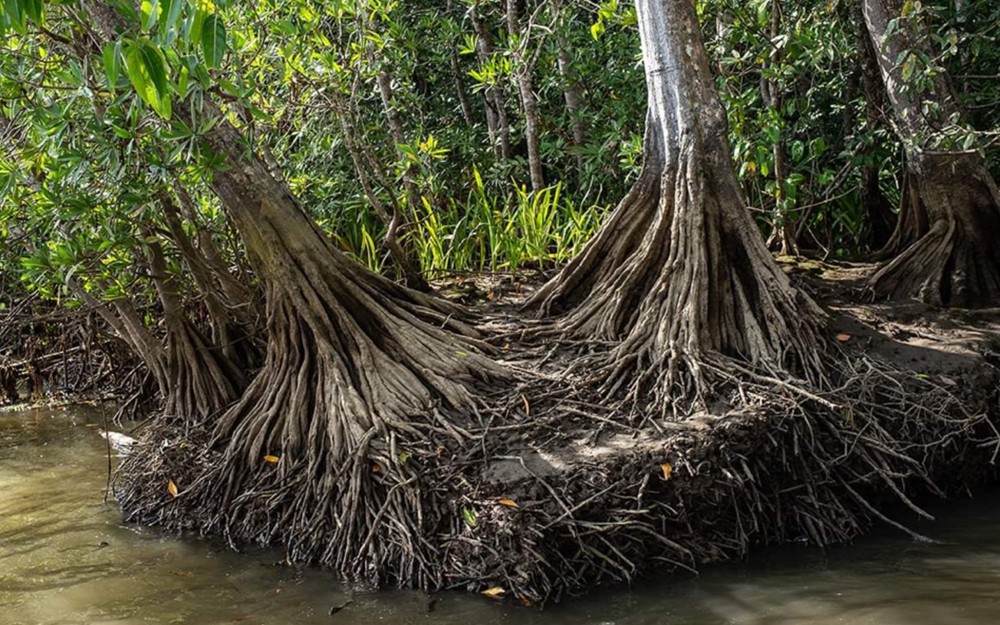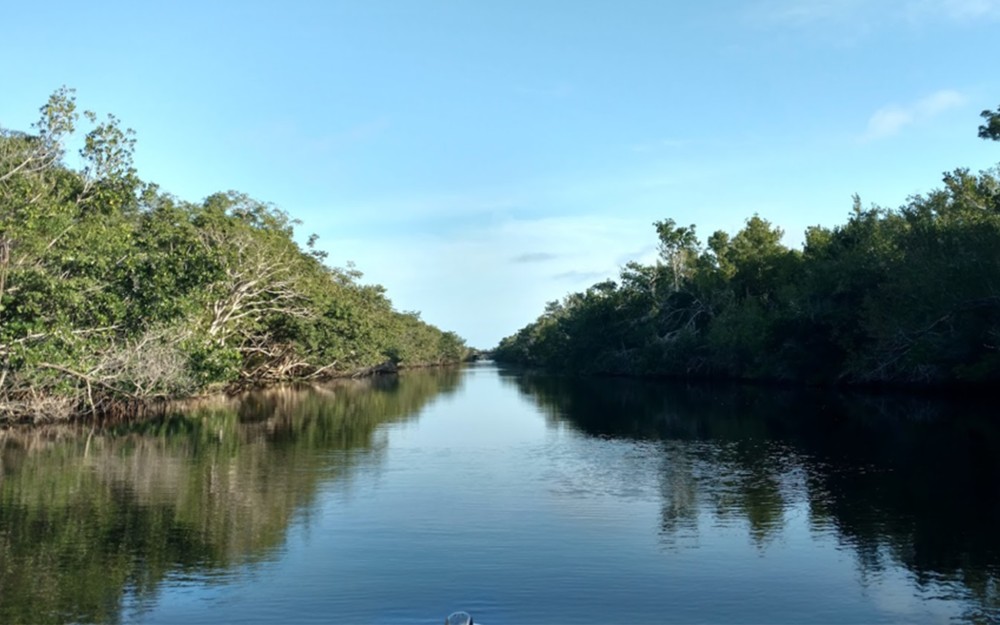- Title: Mangrove Roots and the Everglades
- Principal Investigator: Oscar Valverde-Barrantes
- Funding Source: Tropic Synergy Faculty Fund & Private Funding
- Timeline: 08/2019 - Ongoing
Mangroves are a group of species adapted to periodic or permanent flooding, thus their root systems are exposed constantly to stressful conditions, due to the depletion of soil and water dissolved oxygen and the accumulation of toxins such as sulfides and dissolved ions.
Mangrove ecosystems are largely threatened in all their distribution, making the understanding of their evolution, anatomy, physiology and ecology an important asset to conserve and educate about this ecosystem. Considering that mangrove forests are one of the most productive ecosystems worldwide, with important ecological functions and ecosystem services, it is imperative to understand how mangroves adapt and acquire their stress tolerance abilities.
Our work in the Everglades and Central America integrates multiple dimensions of diversity (genetic, phylogenetic, functional) for both mangrove trees and their root-associated microbiomes, framed in an ecological context, and it will set a reference point for future studies on microbial dynamics in this ecosystem.


The reciprocal comparison of Costa Rican and Florida mangroves will allow important progress in our understanding of the mechanisms involved in the development of tolerance to anoxic and toxic conditions in vascular plants and the specificity of the microbial associations on mangroves roots.
Team
Principal Investigator
Oscar J. Valverde-Barrantes
Assistant Professor
305-348-2201
ovalverd@fiu.edu
OE 167
Participating FIU Faculty
John Kominoski
Professor
305-348-7117
jkominos@fiu.edu
CASE 253Christopher Baraloto
Professor; Associate Director, Institute of Environment
305-348-4027, 305-442-7169x101
cbaralot@fiu.edu
OE 243, VH 137
Participating non-FIU Faculty
- Keilor Rojas-Jimenez, Universidad de Costa Rica (UCR)


